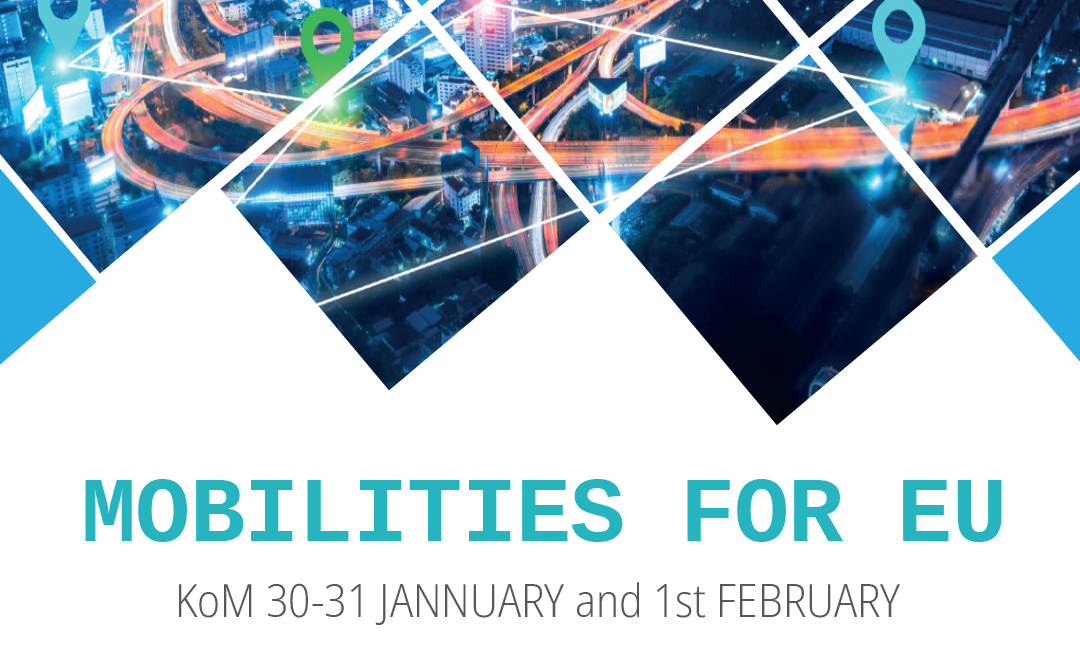The technology centre CARTIF presents this week in Madrid the project MOBILITIES for EU (New MOBility solutions for climate neutrality in EU cITIES) thath will help the capital of Spain and Dresden (Germany) in their transformation towards climate neutrality, focusing on passenger mobility and freight transport.
The kick-off meetings of the MOBILITIES for EU project will take place on 30 and 31 January and 1 February in Madrid. The venue chosen for the kick-off and public presentation of the initiative was Mercamadrid. This ambitious project will be the Spanish demonstrator for sustainable mobility solutions and climate neutrality.
The event kicks off on Tuesday 30 January, with the first technical meeting of the project consortium, wich will be attended by representatives of the cities and delegates from national and international companies and organisations that are members of the consortium, such as Mercamadrid, the Municipal Transport Company of Madrid, the Polytechnic University of Madrid, the Fraunhofer Institute and the Technical University of Dresden (Germany). Coordinated by CARTIF, they will hold workshops and meetings for the presentation of the different work packages that will mark the steps of the first months of the project’s development.
On the second day, the public presentation will take place, with the participation of the Major of Madrid, José Luis Martínez Almeida. The consortium will review the main challenges of the European mission of smart and climate neutral cities, and two round tables will be held, on the actions of Dresden and Madrid, respectively. On the last, the consortium will continue with technical meetings.
MOBILITIES for EU, funded by the Horizon Europe framework programme, aims to demonstrate how different concepts designed and focused on users and their needs can significantly contribute to the transformation of cities in terms of connected autonomous mobility and climate neutrality.
The project will have Madrid and Dresden as ‘lead cities’ where 11 pilots will be implemented covering 23 highly innovative demonstration interventions, combining electrification, automation and connectivity. Autonomous vehicles, innovative charging infrastructures, green fuels, electric buses and H2 vehicles, and advanced connectivity infrastructures, 5G and 6G, for connected and autonomous contribution, are some of the interventions that will be implemented in both cities over the five-year duration of the project.
All these actions will be integrated in the so-called “Urban Transport Labs” (UT-Labs), which will foster rapid replicability at European level. Ioannina (Greece), Trenčin (Slovakia), Espoo (Finland), Gdansk (Poland) and Sarajevo (Bosnia) are the five replicator cities of the project that will follow the path set by Madrid and Dresden, first as direct participants of these two leading cities and, in parallel, through their own UT-Labs.
The project consortium is composed of CARTIF, as coordinator, Madrid City Council, Mercamadrid, EMT Madrid, Orange, Ferrovial, T-SYSTEMS, Plexigrid, Universidad Politécnica de Madrid, Prezero, Alsa, the Municipality of Dreden, Volkswagen, Technological University Dublin, CARNET, SAENA, Municipality of Espoo, Municipality of Trenčín, STUBA, Municipality of Sarajevo, DANSK, Municipality of Ioaninna, STEINBEIS, AEDIVE, RC and IRF.

